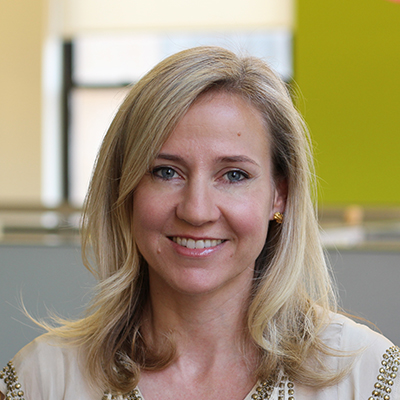This summer, we have seen a historic and deadly heat wave scorch western Europe, killing thousands, fueling wildfires, melting airport runways, and shuttering businesses.
Earlier this year, a record-shattering heat wave in India reduced wheat yields, straining the balance between domestic needs and ambitions to increase exports to make up for shortfalls caused by Russia’s war against Ukraine. Ultimately, India, the second-largest producer of wheat globally, placed a temporary ban on wheat exports, compounding the global food crisis and Europe’s current crop devastation.
In today’s interdependent world, there is no doubt that one of the greatest threats to our global and local economies is climate change. A 2022 Deloitte report found that climate inaction would cost the US economy $14.5 trillion by 2070. The same economy stands to gain $3 trillion over the next 50 years if it accelerates towards low-emissions growth. Furthermore, a World Bank report estimated that an additional 68 to 135 million people could be pushed into poverty by 2030 due to climate change, conflict, and the pandemic.
With their vast influence and resources, corporations and financial institutions have the power to help solve these issues on a massive scale. However, this will require new, creative solutions, because the rules and referees who have got us here will not get us to where we need to go. With a $5 trillion price tag to achieve the UN Sustainable Development Goals, investors and philanthropists must adopt a more radically disruptive stance in their investment and philanthropy decisions.
This is where Environmental, Social, and Governance (ESG) investing (or sustainable investing) comes into play. Companies like IKEA, Chobani, Etsy, and Ecolab are already showing us what is possible when sustainability and purpose are prioritized. These priorities needn’t be at odds with profitability if we shift our mindset from short-term gains to long-term sustainability. Study after study shows that when companies create value for people and planet, they create higher value for themselves and shareholders.
From healthcare to renewable energy and water, the number of highly innovative, impactful businesses demonstrating this potential is growing annually, and generating attractive, long-term financial and social returns. From women-led startups to diverse businesses across emerging economies, these are enterprises with promising growth trajectories, and a unique ability to reach low-income consumers in emerging markets (where 85% of the world lives).
When creative solutions seem to be our best chance forward, why are we not hearing more about these investment opportunities among traditional finance circles? The answer: the financial industry continues to vet, reward, and undertake due diligence with the same lens that aligned with where the world was decades ago. Unsurprisingly, this is not in line with where we are today.
For ESG investing to reach its full potential, we must move from passive divestments and screenings to proactive investments in impact investment funds and businesses that intentionally generate value for all. This intersection between ESG and impact investing is where there is the greatest opportunity to steer more capital towards people, organizations, and social innovations creating a prosperous future. This includes investing in diverse leadership teams and ethical supply chains; in new global standards around disclosures and reporting; and in financial risk analyses that factor in the cost of climate inaction. This is ESG 2.0.
Companies like Lebec Consulting, which are helping maximize impact for philanthropists, impact investors, and profitable business models and social enterprises, consistently see strong performance for portfolios that integrate key ESG factors. These businesses are demonstrating that purpose can generate long-term value and profitability. Many have unconventional structures, are led by social entrepreneurs in emerging markets (including women) and in the US, and leverage patient philanthropic and impact investment capital to expand their reach.
Acumen, a leader in this space with a 20-year track record, has reimagined venture financing and invested in innovative business models that create products and services for millions of underserved communities. Many of the early stage businesses Acumen invests in have gone on to scale and attract additional institutional investment, enabling millions of people to gain access to financial services in the US, and key renewable off-grid energy products in countries across Africa. Many of the businesses Acumen invests in are leading the clean energy transition. In total, Acumen has leveraged flexible philanthropic capital to invest over $150 million in 151 companies overlooked by traditional investors, reaching over 380 million people living in poverty and generating long-term social and financial returns.
Similarly, investors have failed to capitalize on global healthcare despite unending rhetoric from global leaders regarding the need to strengthen our interconnected health systems. The overwhelming majority of healthcare investments made in the last two years have been in the US and other advanced economies, with limited commitments to emerging markets where compelling business models are meeting tremendous demand.
In Bangladesh, for instance, female-founded Praava Health achieved unit level profitability within its first year of operations with a business model that leverages technology, local and international healthcare value chains, government and private sector leadership, and a click-and-brick healthcare platform that has already delivered high quality healthcare to nearly 400,000 patients across Bangladesh. Despite these milestones, it has yet to attract institutional capital.
Betting on companies and investors like the ones mentioned here is not only a feel-good endeavor – it’s better for investors’ bottom lines in the long run, even if holding periods may be longer. Naysayers argue that high profitability will always win the day over purpose due to the design of our capitalist system. To that we say: let’s change the system and invest in opportunities that are adamant about creating impact and financial performance in places where traditional capital has failed to see opportunity.
It’s time for new rules, new referees, and new players. Is your head in the game?
Lebec Consulting is a women-owned and women-led firm that advises corporations, foundations, high net-worth individuals, financial institutions, and entrepreneurs on how to achieve their greatest social impact through philanthropy; impact investing; and environmental, social, and governance (ESG) investing.






































